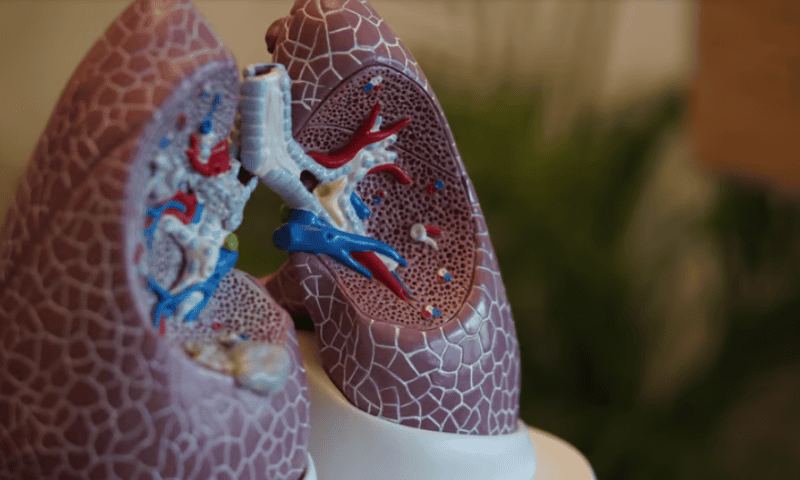Having stacked all its chips on the idiopathic pulmonary fibrosis (IPF) treatment buloxibutid, Vicore Pharma’s bet may be paying off.
The Swedish biotech has unveiled final phase 2a data showing the angiotensin II type 2 receptor agonist improves lung function. Specifically, patients who received the drug saw an average 216-mL increase in their forced vital capacity—a measure of how much air can be exhaled—after 36 weeks.
This was nearly 400 mL above the capacity seen across untreated patients, Vicore noted, hitting the trial’s primary endpoint.
Buloxibutid was also safe and well tolerated with no drug-related serious adverse events and good gastrointestinal tolerability, said Vicore, which is presenting the findings at the American Thoracic Society International Conference. Patients received a 100-mg dose of the drug orally twice daily.
The trial saw investigators evaluate the benefits and risks to patients at both weeks 12 and 24 to determine whether they needed to be switched to standard-of-care. At both checkups, 97% of patients showed positive outcomes and continued with their treatment.
Buloxibutid’s clinical impact was also backed up by measurements of two biomarkers. Researchers saw a drop in plasma levels of the profibrotic cytokine TGFβ1, which is known to drive processes involved in IPF. They also noted an increase in levels of collagenase MMP-13, which has the potential to degrade fibrosis.
The biotech is now advancing the drug into a phase 2b trial that will assess a change in forced vital capacity at 52 weeks.
Vicore CEO Ahmed Mousa hailed today’s results as “exceeding our expectations.”
“Taking together the biomarker data and the compelling improvement in FVC over 36 weeks, we believe that buloxibutid has disease-modifying potential,” Mousa added.
Vicore went all-in on buloxibutid back in January, discontinuing its preclinical immune-mediated inflammatory diseases program to focus resources on the IPF asset. The following month, Nippon Shinyaku handed over $10 million in upfront cash for the Japanese rights to buloxibutid.
The Swedish biotech is also working on a cognitive-behavioral-therapy-based digital therapeutic for the treatment of anxiety in pulmonary fibrosis, dubbed AlmeeTM.

